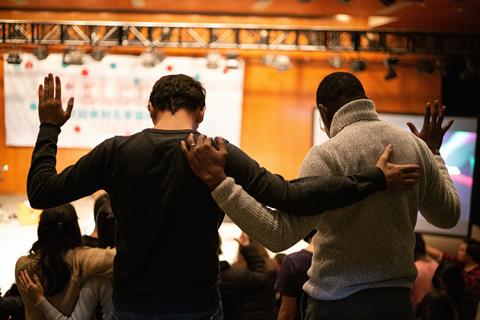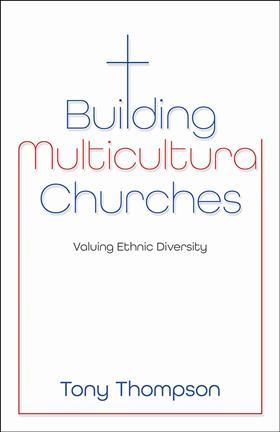Tony Thompson’s Building Multicultural Churches tackles the challenges of building ethnically diverse congregations with passion and honesty. But while his insights are often powerful, some sweeping generalisations risk alienating the very audience he hopes to inspire

Tony Thompson’s Building Multicultural Churches (Malcolm Down) bravely addresses a topic many would prefer to avoid.
Thompson rightly tackles the subject of racial diversity head on, with admirable forthrightness and energy. Aimed at Christian leaders, his book challenges British churches to pursue greater diversity and confront the perceived shortcomings in how race and ethnicity are handled within the body of Christ.
Thompson is well positioned to write this book, having pastored a church in Luton, one of the UK’s most diverse cities. His firsthand experience of both blessings and challenges shines through in the many personal anecdotes and quotes included from minority ethnic congregants. His main argument is summed up in a single line from the introduction: “I believe that the wisdom of God is found in the coming together of people from different ethnic and social backgrounds bringing their distinct contribution to the family of God.”
While Thompson briefly reflects on his working-class background and the struggles he encountered trying to fit into a middle-class church culture, the book is clearly focused on ethnic diversity rather than class, gender, or other markers. Thompson’s hope is to see more ethnically diverse churches that embrace: “unity while valuing diversity,” believing this best reflects the “manifold wisdom of God.” (Ephesians 3:10) Thompson uses various tools to prove his thesis, starting with his personal experiences before moving to scripture, and then addressing what he considers to be the issues within contemporary British culture such as prejudice, cultural blinders, and lack of humility.
Thompson understands what it is to be an outsider. He has a heart for those on the fringes of a culture, or who lack the confidence to enter spaces where they are a minority. His handling of scripture is also insightful, particularly in his dissection of the incident Paul describes in Galatians where Jewish believers stopped eating with Gentiles. He highlights the countercultural nature of the gospel and offers thought-provoking insights into how cultural perspectives shape our reading of scripture, exhorting leaders to encourage those from different backgrounds to read and pray together.
Thompson’s unsupported claims become a serious issue as they grow increasingly provocative
But as Building Multicultural Churches moves from Thompson’s personal experiences and exposition of scripture into a commentary on the state of UK churches, his conclusions become hazier, often relying on sweeping generalisations unsupported by evidence beyond anecdote. In one section, Thompson describes British leaders as wanting meetings to be “logical”, while: “ethnic minority leaders expect a more spiritual approach”. Elsewhere, he asserts that majority white churches prioritise: “numerical growth, slick worship and […] a cool website”, whereas: “listening to the needs of local families […] [feels] more of a priority to ethnic minorities”. While likely not intended to offend, these observations play into unhelpfully subjective stereotypes.

Thompson’s unsupported claims become a serious issue as they grow increasingly provocative, undermining his stated objectives. No data is supplied to support claims such as “white people are more likely to choose segregation than other ethnicities” or for a list entitled: “other aspects of white culture that minorities find off-putting”. While he asserts that: “it is not for us to condemn other cultures”, he is quick to negatively caricature British culture with statements like: “British people don’t talk” and, oddly, that British people use: “dirty tea towels”. Furthermore, Thompson’s discussion of multiculturalism can feel reductive, often framed simply in terms of ‘black’ and ‘white’, neglecting non-white British congregants who feel perfectly at home in British culture, and white non-British congregants who do not.
The discussion around how to grow healthy, gospel-rooted, diverse churches within the UK is an important one. Some leaders will need to hear the message that minority groups within their congregations may feel suffocated or excluded by the dominant ethnic culture. But many others, however, may not recognise Thompson’s generalisations in their own experience, and some may feel unfairly mischaracterised or patronised by his more subjective conclusions.




































No comments yet